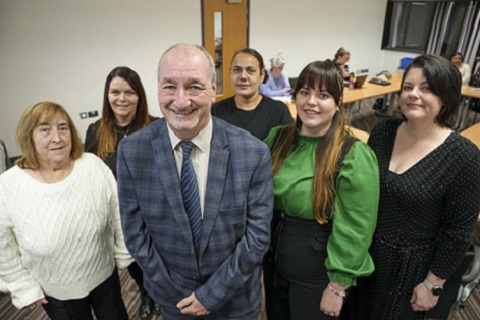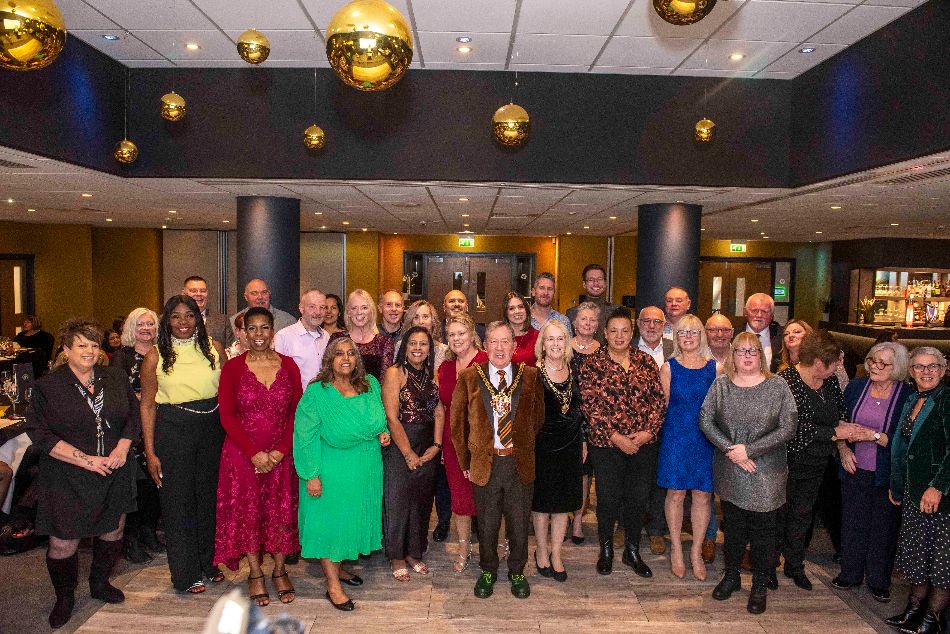The NHS is facing a significant challenge to recruit enough new plasma donors in Birmingham because many people don’t realise they are eligible to donate.
If enough people came forward in Birmingham over the next year, that would provide enough plasma medicine to save or improve around 100 lives, reducing how much the NHS has to import and creating a safer supply chain for patients. The are currently around 2,000 regular plasma donors at the Birmingham centre and around 2,600 more are needed over the next year.
NHS Blood and Transplant is running the ‘All Types Can Save Lives’ campaign this month (November) with the message that most people can donate, no matter their blood type or background. Donation only restarted two years ago and NHSBT research shows most people are willing to give plasma, but many don’t know if they are eligible.
However around seven out of every ten people who come in to donate plasma for the first time at the Birmingham centre are able to donate. Plasma is part of your blood. It is used to make medicines which treat more than 50 different diseases.
It does not need to be matched by blood type. Plasma donation is similar to blood donation and takes about 35 minutes. The difference is blood is gradually ran through a machine which separates out the plasma.
The donor’s plasma contains antibodies, part of your body’s immune system, which strengthen or stabilise the patient’s immune system. These antibodies are made into medicines including immunoglobulin - during 2021/2022, around 500 people from the West Midland county received this medicine.
Plasma donation to the NHS only restarted in 2021 after a break of more than 20 years. Donation was stopped as a vCJD precaution until the Medicines and Healthcare products Regulatory Agency said new evidence showed it could safely restart.
The plasma being collected by NHSBT is being frozen and will improve future immunoglobulin supplies, when the full supply chain is in place. Taking more donations now will improve the future security of supply and reduce how much the NHS has to buy on the international market.
People supporting the campaign include Emma Armstrong, 34, from Lichfield, Staffordshire, needed plasma medicine after being paralysed by the sudden onset of an autoimmune disease. Over four days, she went from healthy to being put in an induced coma to help keep her alive. She spent five months in hospital.
After waking up paralysed, Emma received immunoglobulin and plasma exchanges, which helped her body stop attacking itself and she’s made an almost complete recovery. Emma, the managing director of a business consultancy, was diagnosed with Guillain Barre Syndrome in August 2022, only a month after coming back from her honeymoon in Aruba.
Emma said: “I started getting pins and needles in my hands. It started getting worse and spreading around my body to the point where it became very difficult to do anything.”
Emma became unable to move properly – if she stood up, she would fall over – and days later was rushed into hospital. “I was exhausted, I couldn’t breathe, everything was shutting down. I was scary. I knew something had to give.”
She was put into an induced coma, on ventilation via a tracheostomy, fed through a tube and supported with various drugs. Guillain Barre is caused when your immune system mistakenly attackers your nervous system, stopping muscles working properly – it becomes especially life-threatening when, as in Emma’s case, it affects the lung muscles.
Emma spent three weeks in the coma and woke up paralysed. “The doctors explained they had thought I wasn’t going to make it because of what my body had been through. By the time I came around, everyone was so relieved.”
“She could only communicate by blinking. I was completely paralysed, head to toe. I couldn’t even close my jaw.
“I was in a little bit of disbelief about what was happening because the thought of spending my life like that was horrendous. But there was nothing I could do express myself so it was quite scary really.”
Emma began treatment with immunoglobulin, a medicine made from antibodies found in donor plasma. These healthy antibodies, part of the body’s natural immune system, can help calm down the patient’s own antibodies, so they stopped mistakenly attacking her nervous system.
She also had plasma exchanges, where her own plasma and antibodies were replaced with albumin solution, which is also made from healthy donor plasma. I know the immunoglobulin was very expensive and they gave me as much of that as they could.
“My body started to work again – at first I was able to move a finger. I started to get sensitivity back. After 11 weeks in a hospital bed, I had no strength, and I had to do a lot of physio.”
She was discharged on December 19, in time for Christmas, still only able to walk with a zimmer frame until late January, and continued months of gruelling exercise and physio, but has now returned to work. She said of plasma donors: “Without donors, people like me wouldn’t get the treatment they need, it just makes such a difference.
“Without it, I would be just a shell. Thank you to everyone who donates plasma.” Also supporting the campaign is Dirk Perry, 52, from Lowes Hill in Bromsgrove, who receives immunoglobulin for the autoimmune disorder myasthenia gravis.
His immune system is damaging the communication system between his nerves and muscles. Dirk, a retired nurse, experiences symptoms including falls, slurred speech, difficulty breathing and eating, and poor upper body strength.
He is treated at the Queen Elizabeth Hospital in Birmingham and the QE Birmingham and The Alexandra Hospital in Redditch and said: “Immunoglobulin gives me some relief from the most severe symptoms. Plasma donation is truly lifesaving – if it were not for receiving immunoglobulin, I probably wouldn’t be alive today.
“Please take time to donate – one day it could be you or a member of your family that needs treatment.” Mark Bailey, Birmingham Plasma Donor Centre Operations Manager, said: “Many people don’t realise that they could donate but our amazing donors come from all walks of life.
“If you’re aged 17-65, fit and healthy, regardless of your blood type you could become a lifesaving plasma donor. Most people can donate plasma – and it feels great to provide life-saving medicines.”
Dr Naim Akhtar, Consultant Haematologist and Lead in Donor Medicine, said: “You have a medicine in you which helps babies’ hearts, adds antibodies, improves the immune system, prevents paralysis - it’s amazing, life-saving plasma. If you’re not sure if you can donate, check out our website and book your appointment today – most people who come to their first appointment can donate.”
- Birmingham plasma donor centre is in 61 New Street Birmingham B2 4DU.
- Anyone who are the giving type can search ‘donate plasma’ and book your appointment today at blood.co.uk/plasma












